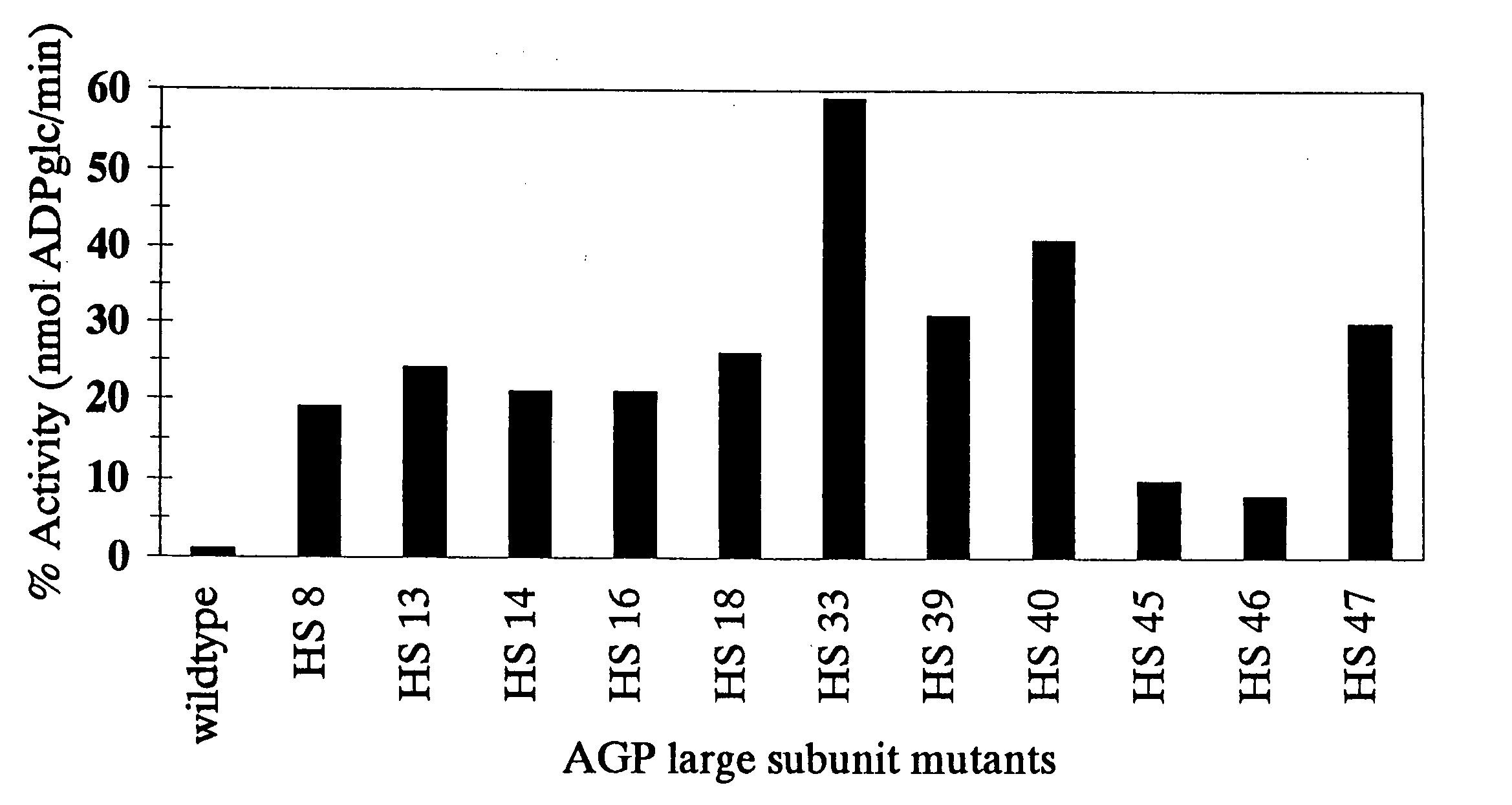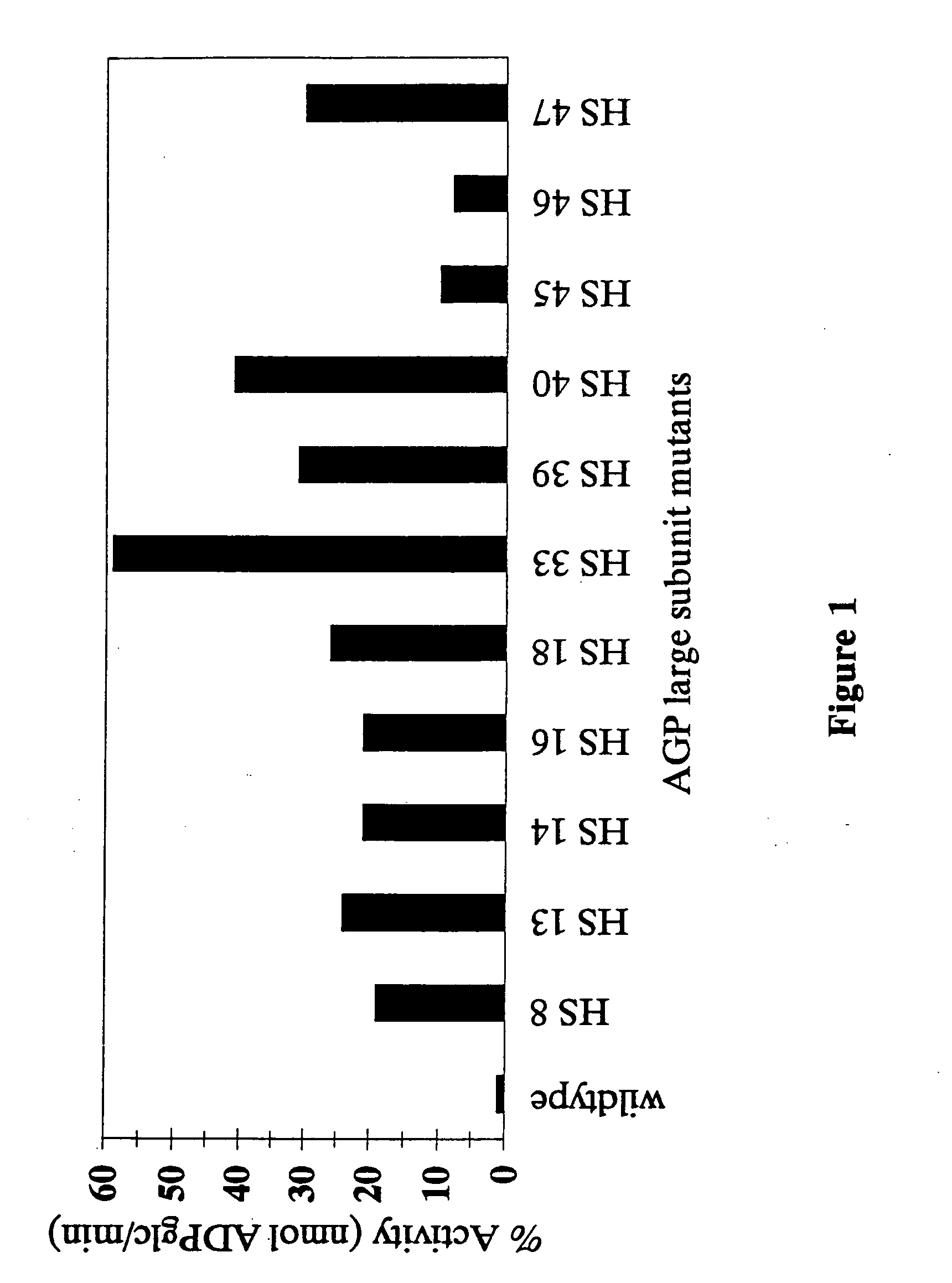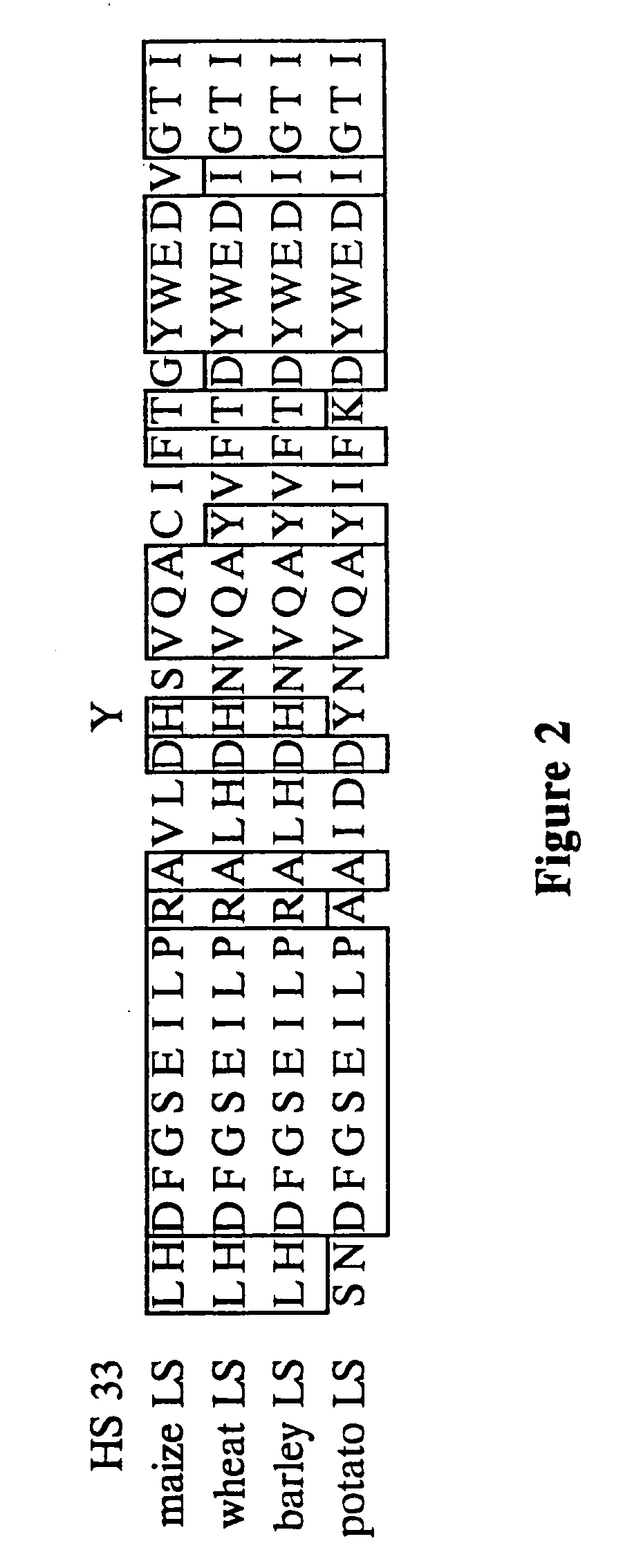Heat stable mutants of starch biosynthesis enzymes
a technology of starch biosynthesis and stable mutants, which is applied in the field of heat stable mutants of starch biosynthesis enzymes, can solve the problems of reducing the grain affecting the yield of many cereals, and adverse environmental conditions, and achieves the effects of enhancing the crop enhancing the yield of these plants, and reducing the risk of contamination
- Summary
- Abstract
- Description
- Claims
- Application Information
AI Technical Summary
Benefits of technology
Problems solved by technology
Method used
Image
Examples
example 1
Use of Mutagenesis to Obtain Maize Endosperm AGP Heat Stable Variants
[0089] The chemical mutagen hydroxylamine-HCl was initially used for the random mutagenesis of the large subunit expression plasmid. Hydroxylamine preferentially hydroxylates the amino nitrogen at the C-4 position of cytosine, and leads to a GC to AT transition (Suzuki, D. T., Griffith, A. J. F., Miller, J. H., and Lewontin, R. C. [1989] In Introduction to genetic analysis, Freeman, N.Y., 4th ed., pp. 475-499). The chemical mutagen was chosen for its high mutation frequency. Limitations of the chemical mutagen are recognized, and if a large variety of genetic variants are not isolated, PCR based random mutagenesis can be performed. PCR mutagenesis generates a broader spectrum of mutations that include similar frequencies of transitions and transversion, and provides an excellent alternative to the chemical method. The method outlined by Cadwell and Joyce (Cadwell, R. C. and Joyce, G. F. [1992]PCR Methods and Appli...
example 2
Molecular Characterization and Analysis of Heat Stable AGP Variants
[0091] Initially, 11 heat stable variants of the maize endosperm large subunit were obtained. Sequencing was performed using DuPont and ABI instrumentation. Sequence data can be routinely compared to the progenitor wild-type allele. This analysis reveals the extent of diversity of changes conditioning heat stability.
[0092] Several of the sequenced HS mutants contained the identical histidine to tyrosine change at amino acid position 333 in the large subunit. PCR-derived HS mutants can be quickly screened for the histidine to tyrosine alteration by use of site-specific mutagenesis using primers that change the tyrosine back to histidine.
example 3
Expression, Purification and Kinetic Analysis of Genetic Variants
[0093] Conditions for the expression of the wild-type maize endosperm AGP in E. coli have been fully characterized. Optimum growth and induction conditions vary somewhat from those previously published for potato AGP expressed in E. coli (Iglesias et al., 1993, supra; Ballicora et al., 1995, supra). Induction at room temperature for 12-14 hrs in the presence of 0.3 mM IPTG and 25 μg / ml nalidixic acid consistently gives high levels of expression and activity. Addition of 30% ammonium sulfate and 10 mM KH2PO4− / K2HPO4− to the extraction buffer stabilizes the maize AGP in the crude extract.
[0094] Ammonium sulfate concentrated AGP is further purified by Hydrophobic Interaction Chromatography using Tentacle C3 aminopropyl media (EM Separations) packed into a Pharmacia HR 10 / 10 column. Protein binds to the column in a buffer containing 1 M ammonium sulfate. AGP is eluted from the column by successive step gradient washes of...
PUM
| Property | Measurement | Unit |
|---|---|---|
| temperature | aaaaa | aaaaa |
| temperature | aaaaa | aaaaa |
| temperature | aaaaa | aaaaa |
Abstract
Description
Claims
Application Information
 Login to View More
Login to View More - R&D
- Intellectual Property
- Life Sciences
- Materials
- Tech Scout
- Unparalleled Data Quality
- Higher Quality Content
- 60% Fewer Hallucinations
Browse by: Latest US Patents, China's latest patents, Technical Efficacy Thesaurus, Application Domain, Technology Topic, Popular Technical Reports.
© 2025 PatSnap. All rights reserved.Legal|Privacy policy|Modern Slavery Act Transparency Statement|Sitemap|About US| Contact US: help@patsnap.com



